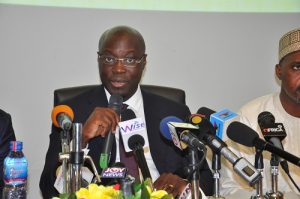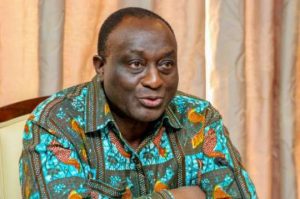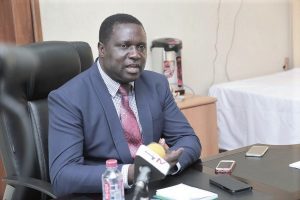The various interventions outlined in the 2023 Budget presented by the Finance Minister will address the severe economic challenges Ghanaians are currently experiencing, President Nana Akufo-Addo has stated.
Speaking at the 38th Farmers’ Day Celebration in Koforidua, the president said it was important for the government to adopt some austere measures as well as ramp up efforts in domestic revenue mobilization amid the challenges confronting the country.
“The 2023 Budget presented to Parliament by the Minister for Finance seeks to address these economic challenges through a number of very difficult, but necessary measures. These measures include a debt operation to address our fiscal and debt sustainability concerns.
“Debt operations alone will not be enough to address the debt sustainability concerns. It is for this reason that we are complementing the debt operations with fiscal adjustments, through improvement in revenue collection and expenditure rationalisation measures, to promote debt and fiscal sustainability. This is why the Minister for Finance outlined a number of revenue and expenditure measures for the consideration and approval of Parliament.”
The president also highlighted the government’s self-imposed cost-cutting measures, including the continuity of the 30 percent salary cut among political appointees and a review of some government flagship programmes, among others.
These measures, President Akufo-Addo said, will help reduce spending towards fiscal sustainability as the country navigates through its challenges.
“Government is proposing significant expenditure rationalisation measures, including a lowering of the cap on transfers to earmarked funds from 25 per cent to 17.5 per cent; review of Government flagship programmes to reflect relevance, promote efficiency, and ensure value for money; continue with the 30 per cent cut in the salaries of the President, Vice President, Ministers, Deputy Ministers, MMDCEs, and political office holders including those in state-owned enterprises; manage public sector wage negotiations and hiring within budgetary constraints, and integrate the public procurement approval processes with GIFMIS and budget allocation.
“There are other key public expenditure measures which seek to demonstrate the government’s burden sharing in addressing the economic challenges facing us. These measures, which range from reducing fuel allocation, the size of convoys, the suspension of the creation of new government agencies, to a ban on the use of V8 vehicles, are expected to reduce spending towards fiscal sustainability.
“I am optimistic that all these fiscal measures, together with the debt operations and the implementation of key structural reforms to eliminate the structural bottlenecks in the economy outlined in the 2023 Budget, will go a long way to address the economic challenges,” the president assured.
Ghana’s economy has been on a downturn, with the government returning to the International Monetary Fund in July this year to secure a bailout.
The government is looking at securing a $3 billion loan facility, which will be spread over a three-year period.







